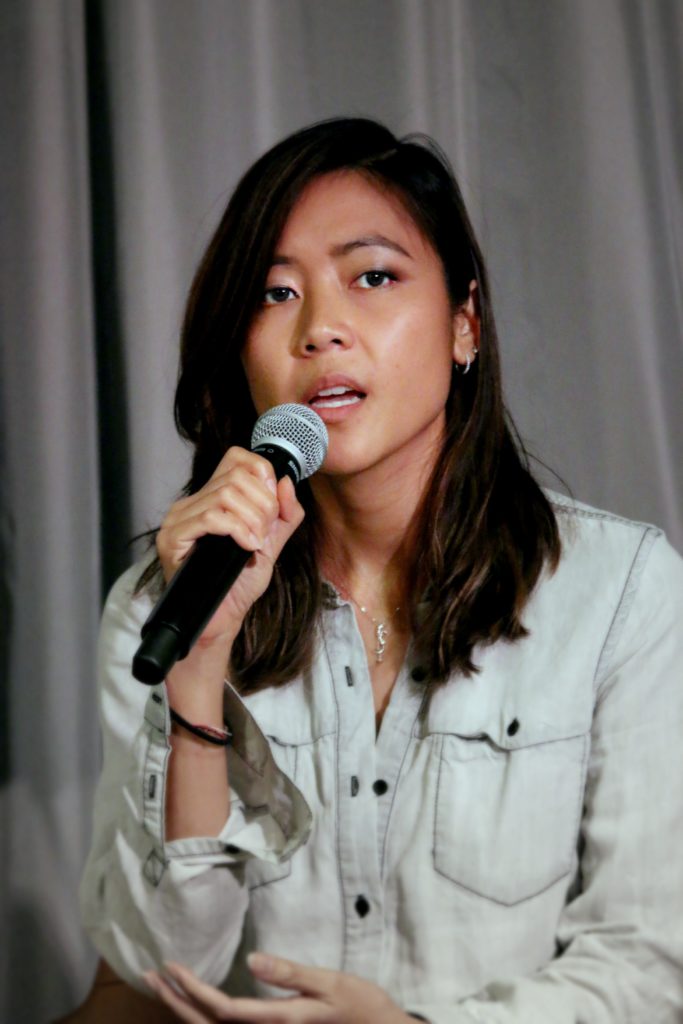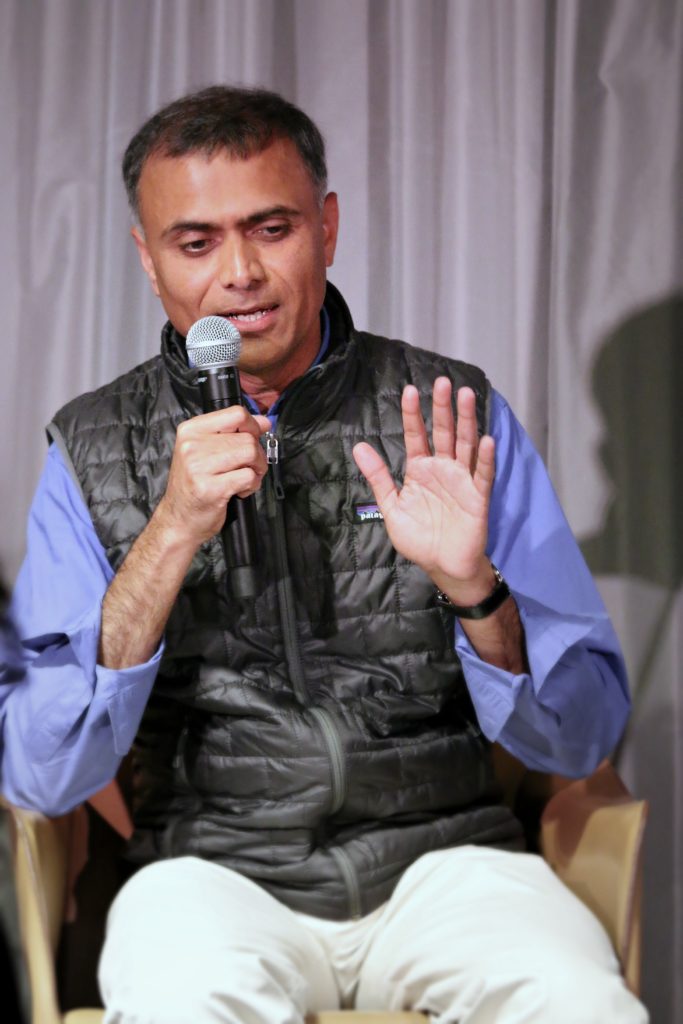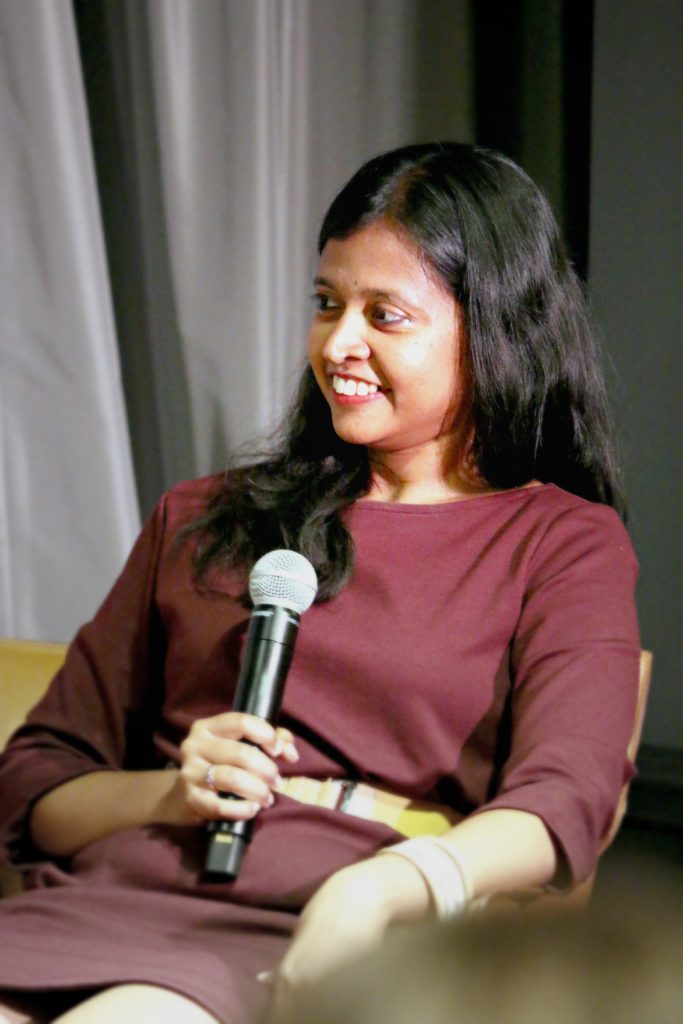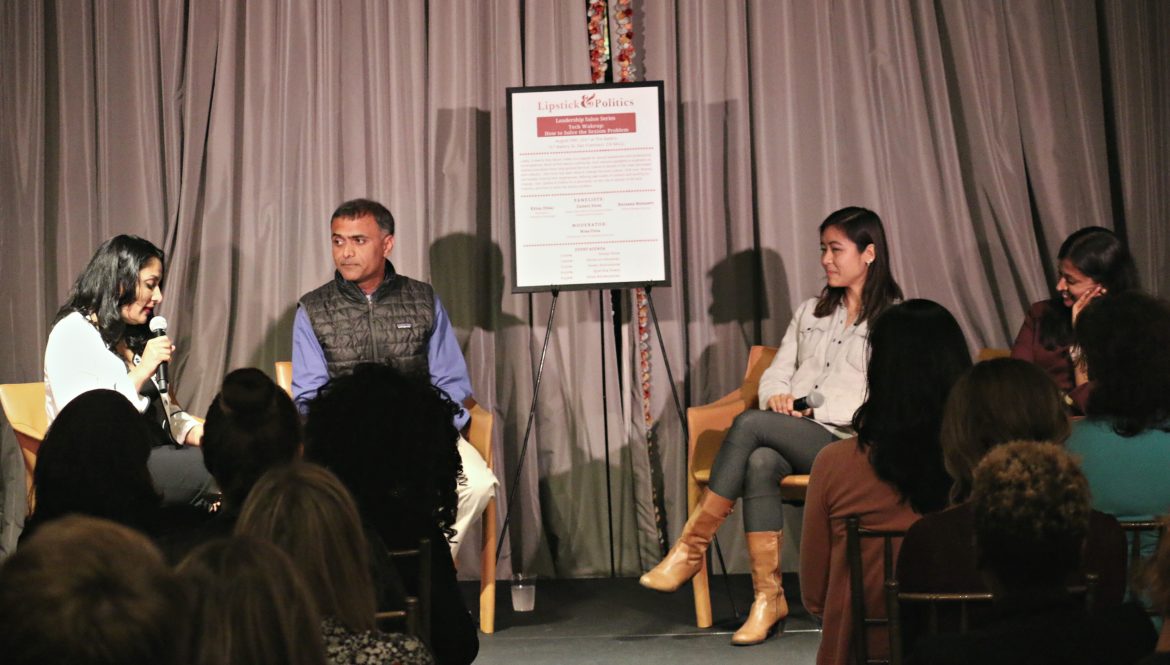As part of the Leadership Salon Series, the team at Lipstick & Politics hosted an event called Tech Wakeup: How to Solve the Sexism Problem. The event featured a varied group of panelists that included Cheryl Yeoh (Board Director of Flexiroam Limited and previous CEO of MaGIC), Keval Desai (Partner at Interwest Partners), and Natasha Mohanty (CTO of Prizma and Fem Inc.). Mira Veda, Editor and Chief of Lipstick and Politics moderated the event.
Veda began by informing the audience on some of the most alarming statistics about the gender gap in the tech industry. Based off of a study from Fenwick, she reported that:
- Women own 5% of startups
- Women earn 28% of computer science degrees
- 7% of partners at top 100 venture capital firms are women.
- Women hold 25% of computing jobs.
- 11% of executive positions at Silicon Valley companies are women.
- 9% of executive officers in Silicon Valley are women.
Aside from this, Veda also noted from Forbes Top 100 List while quoting: “In 2017 there are 32 female CEOs on the list, meaning that 6.4% of the U.S.’s biggest companies (by revenue) are run by women.”
This prompted her to begin the discussion by asking the panelists one of the most fundamental questions: How do we include more women in the tech?

Cheryl Yeoh, photo by Tiffany Rika Russell
Immediately, Yeoh responded. Although it did not completely correspond with the question that Veda asked, she dove straight into the heart of the conversation by breaking the silence on the rampant sexual harassment that many women have experienced. She spoke about her own personal experience with Dave McClure, former founder of 500 startups, and addressed that the lack of women in the industry was not only an issue of education, but that it was also a systemic problem.
Men and women need to work together to solve it.
Mohanty responded by highlighting a key issue—we need to tackle stereotypes through more media-diverse representations of women. Desai concluded the segment by pointing out the two main issues perpetuating the incidence of sexual harassment were fueled by a lack of diversity in venture capital and gender discrimination. He explained that although the tech industry has been receiving a large amount of negative publicity, that it should not discourage women from going to Silicon Valley to pursue their dreams in the tech industry. He also mentioned how relevant it is for women to pursue careers in venture capital today, and that there are more women in his field now than there ever was before.

Keval Desai, photo by Tiffany Rika Russell
Veda followed up by informing the crowd of a survey run by Women Who Tech, that indicated the type of harassment that both men and women faced, where it happened, and by whom. A couple particular striking info graphics centered around the statistics of women being propositioned for sex, and the incidence of sexual harassment amongst the female community in tech stood out:



Yeoh responded by mentioning the importance of programs like Project Calisto that benefit survivors of assault on college campuses. The project is a third-party platform that allows students on college campuses to anonymously report incidence of sexual assault or rape to authorities designated to catch repeat offenders while protecting their safety and confidentiality victims. She noted that the tech and venture capital industry should also consider implementing a similar program.
The audience throughout the event was very interactive about their thoughts on this issue. One woman in the crowd mentioned that to approach the issue we need to implement code of conduct solutions and challenge the stories of success in Silicon Valley that are centered around “douchebag” men. Women’s success stories in the industry are not being highlighted, and by making these “douchebag” men famous, we are giving boys who want to follow in their same footsteps of success a bad example.

Natasha Mohanty, photo by Tiffany Rika Russell
The remainder of the conference centered on the crowd’s interactive response to combating these attitudes in future generations. Other comments from the audience communicated teaching boys to be feminist, encouraging those in the tech industry to set up clear and distinct boundaries about what defines sexual harassment and discrimination in order to prevent it, and encouraging women to be assertive and a reliable network of support for one another within the industry.
The event concluded a little too soon for some people who were just beginning to scratch at the surface of such a profound problem. However, it sparked an interesting and pertinent conversation about an ongoing issue. Hopefully, it also encouraged those that attended to continue having these conversations with their colleagues and within the industry.
By: Nadia Lopez

